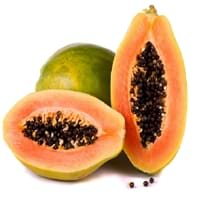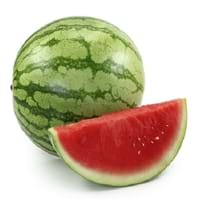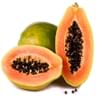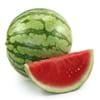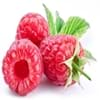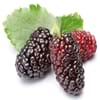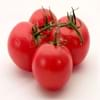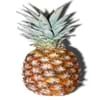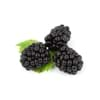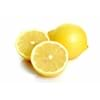Health Benefits
Arthritis prevention, Asthma treatment, Cancer prevention, Heart care, Prevents macular degeneration, Prevents rheumatoid
Anti-aging benefits, Anti-inflammatory properties, Asthma treatment, Body hydration, Cancer prevention, Digestive aid, Skin cleansing, Skin rejuvenation
General Benefits
Anti-inflammatory properties, Boosts immune system, Digestive aid, Healing of wounds, Maintains healthy cholesterol level, Strengthens bones
Anti-inflammatory properties, Body hydration, Controls blood pressure, Digestive aid, Maintains healthy cholesterol level
Skin Benefits
Anti-aging benefits, Hydrates skin, Skin revitalization, Treatment of acne, Treatment of dark spots
Anti-aging benefits, Brightens and lightens complexion, Hydrates skin
Hair Benefits
Good conditioner, Promotes longer and healthier hair, Softening mask, Treatment of dandruff
Promotes longer and healthier hair, Regulates hair growth
Allergy Symptoms
Abdominal pains, Carotenemia on excessive consumtion, Latex Allergy
Breathing difficulty, Decrease in blood pressure, Dizziness, Eczema, Hives, Runny nose, Swelling of mouth, tongue or lips, Watery eyes
Side Effects
Allergic reaction, Skin problems, Possibly unsafe during pregnancy
Allergic reaction, Bloating, Diarrhoea, Indigestion, Intestinal gas, Nausea, Vomiting
Best Time to Eat
As a snack in the late afternoon, Don't consume at night and before bed, Don't eat after meal
As a snack in the late afternoon, Don't consume at night and before bed, Eat the fresh ones, avoid mixing with any other foods, don't eat after meal., Strictly avoid empty stomach
Vitamin B5 (Pantothenic Acid)
Vitamin C (Ascorbic Acid)
Vitamin K (Phyllochinone)
Phytosterol
Not Available
Calories in Fresh Fruit with Peel
Not Available
Not Available
Calories in Fresh Fruit without Peel
Calories in Frozen Form
Not Available
Calories in Canned Form
Not Available
Type
Melon, Tree fruit
Berry, Melon
Season
All seasons
Summer
Varieties
Coorg Honey Dew, Pusa Dwarf, Pusa Giant, Pusa Majesty, Pusa Delicious, Pusa Dwarf, Solo, Ranchi, Taiwan-785 and Taiwan-786
Sugar Baby, Sangria, Golden Midget, Starlight, Jubilee, Starbrite, Extazy, Stars 'n' Stripes, Mickylee, Yellow Baby, Yellow Doll, Little Baby Flower, Sweet Favorite and Cream of Saskatchewan
Color
Orange, Yellow
Canary yellow, Coral red, Orange, Salmon yellow, Scarlet red, White
Taste
Luscious, Sweet
Sweet
Origin
Mexico, Central America
Southern Africa
Soil Type
Rocky, Sandy, Well-drained
Sandy, Well-drained
Climatic Conditions
Warm, Without frosts
Dry, Hot
Facts about
- Papaya seeds show contraceptive effects in male monkeys.
- Their seeds are used as a replacement for black pepper in some nations due to peppery taste.
- Papaya is known by funny names like paw paw or papaw and the mamao.
- Watermelon contain 91% of water.
- In Japan & Chine, watermelon is a popular gift to bring a host.
- Entire watermelon is edible, even the rinds & seeds.
- There are more than 1200 varieties grown in the world.
Other Countries
Brazil, Indonesia, Mexico, Nigeria
Algeria, Brazil, Egypt, Iran, Kazakhstan, Mexico, Spain, Turkey, United States of America
Top Importer
United States of America
Germany
Top Exporter
Mexico
China
Botanical Name
Carica papaya
Citrullus Lanatus
Synonym
Not Available
Citrullus vulgaris
Subkingdom
Tracheobionta
Tracheobionta
Division
Magnoliophyta
Magnoliophyta
Class
Magnoliopsida
Magnoliopsida
Subclass
Dillenhidae
Dillenhidae
Order
Brassicales
Cucurbitales
Family
Caricaceae
Cucurbitaceae
Species
C. papaya
C. lanatus
Generic Group
Papaya
Gourd
Compare Papaya and Watermelon
It is important compare Papaya and Watermelon as both the fruits have a different nutritional value. Their comparison can be done on the basis of their vitamin and mineral content, calories, benefits as well as characteristics, making it easier for us to choose the best fruit for our diet. Their general health benefits are as follows:
Papaya Benefits: anti-inflammatory properties, boosts immune system, digestive aid, healing of wounds, maintains healthy cholesterol level and strengthens bones.
Watermelon Benefits: anti-inflammatory properties, body hydration, controls blood pressure, digestive aid and maintains healthy cholesterol level.
Fruits are also used as a remedy for various hair problems. The hair benefits of Papaya are: good conditioner, promotes longer and healthier hair, softening mask and treatment of dandruff and hair benefits of Watermelon are: promotes longer and healthier hair and regulates hair growth. Some fruits are known to cause allergic reactions. The allergy symptoms of first fruit are: abdominal pains, carotenemia on excessive consumtion and latex allergy and the symptoms of second fruit are: breathing difficulty, decrease in blood pressure, dizziness, eczema, hives, runny nose, swelling of mouth tongue or lips and watery eyes. Get sorted Papaya vs Watermelon comparison with the help of fruit comparison tool by fruitvs.com.
